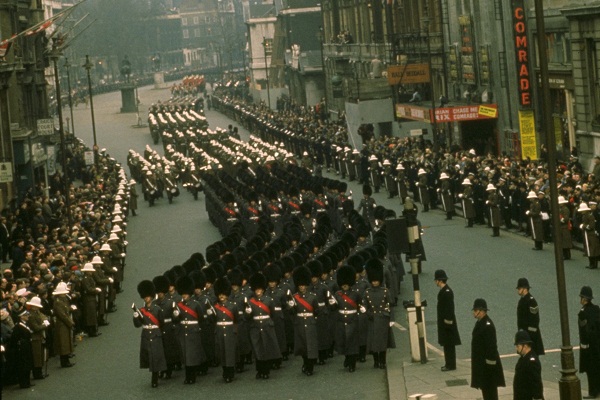‘To the Grave’
Unclasp thy womb, thou mortuary shrine,
And take the worst part of the best we had.
Thou hast no harbourage for things divine,
That thou had’st any part was yet too bad.
Graves, for the grave, are fit, unfit for thee
Was our sweet branch of youthful royalty.
Thou must restore each atom back again
When that day comes that stands beyond all night.
His fame (meanwhile) shall here on earth remain,
Lo thus we have divided our delight:
Heaven keeps his spirit stalled amongst the just,
We keep his memory, and thou his dust.
Prince Henry was the eldest son of James I and VI (that’s first of England, sixth of Scotland). In 1612 he died at the age of eighteen. An extraordinary period of spontaneous popular mourning followed. Henry had been a notably pious Protestant and the relationship between him and his father had become strained. Indeed, his circle of followers had emerged as something as a counterweight to the power of the king. All this encouraged people who hoped that England would one day become a more aggressive champion of Protestantism in Europe. With his unexpected death those hopes seemed suddenly destroyed. Henry’s younger brother became heir to the throne and eventually Charles I. He was much less popular than his brother – perhaps history has proved the English people’s instincts right.
After Henry’s death booksellers knew that there were plenty of customers who’d be interested in buying something on such a sensational subject. Rowley’s poem was printed in one of several commercial offerings, a collection called Great Britaine, all in blacke for the incomparable losse of Henry, our late worthy Prince. It was printed with a striking title-page which is almost entirely black. It would have stood out in the bookshop like a ‘souvenir edition’ of a newspaper today after some notable calamity or death.
As is appropriate for such a popular figure as Prince Henry, Rowley’s poem celebrates the dead and offers consolation to the living. Rowley does this by addressing Henry’s grave directly and making it stand for death itself. It is the grave that has ‘taken the worst part of the best we had’ (the ‘worst part’ is the body which is far inferior to Henry’s soul). By this, Rowley makes death a place rather than an event. It was not the extinction of Prince Henry. It is somewhere his body has gone to.
Other parts of him have gone elsewhere. In these other places he is not alone. His ‘spirit’ (or soul) is in Heaven ‘stalled amongst the just’. ‘Just’ can mean those who shared Henry’s particular form of Calvinist protestant faith as well as good people in general. Alive, Henry was a hero for a community of dedicated Protestants. Dead, Rowley tells us, he has joined an eternal congregation of true believers.
Furthermore those left behind by his death still have his ‘fame’ which ‘shall here on earth remain’. This is a comfort to the bereft. It is also a way in which Henry continues to exercise power on earth. Emulation of famous men was held to be an important spur which motivated people to act according to their duties. As long as those who shared Henry’s values continue to remember him, they will continue to fight for the things he believed in. Perhaps Rowley is gently encouraging Henry’s followers not to give up on the causes they thought he stood for.
Henry is thus split into three parts by Rowley. His body is in the grave, his soul is in heaven, and his fame lives on earth. Rather than obliterating him, death holds Henry in a sort of suspended state in which he is neither fully present nor fully absent anywhere. Furthermore, his passing has ‘divided our delight’. We are bereft by his death, but not completely. Some of him remains and we are left, like him, in a peculiar sort of limbo or purgatory whilst we await either full reunion or a final separation from our hero.
In reality Henry would be gradually forgotten as the realities of life under Charles I and the civil war made England a different place. But Rowley promises something different in 1612. He looks forward to the Apocalypse when, according to the Church, the bodies of the dead will be physically restored. Then the just will live together in heaven for ever. Looking forward to this day ‘that stands beyond all night’ Rowley awaits a time when the three parts of Henry will be fitted back together. Body, soul, and his friends on earth who have remembered him, will all be reunited.
This is the promise of faith. It is also offers more worldly consolations. Just as Henry is not truly lost, perhaps neither is the political cause he stood for. Perhaps that, too, can be pieced back together. Rowley was wrong about this, but plenty of people wanted to believe it in 1612 and would pay good money to be told that it was so.






Comments